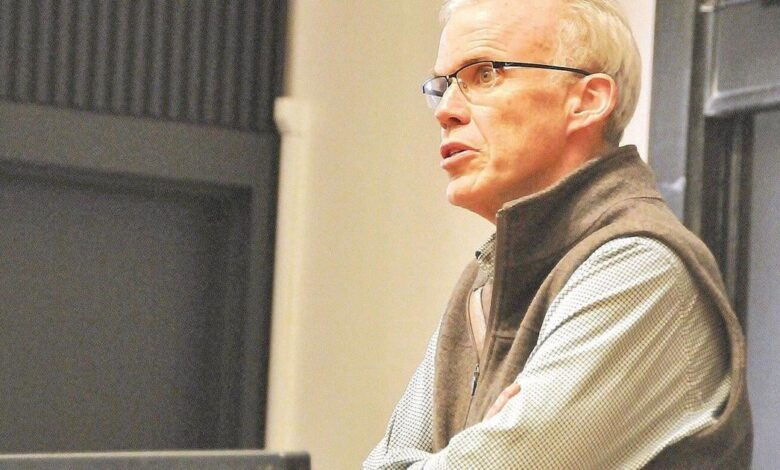Bill McKibben to speak on solar power and solutions to climate change at New Marlborough Meeting House | Books

NEW MARLBOROUGH — Noted environmental advocate, educator and author Bill McKibben believes in stepping up the fight against the intensifying climate crisis before it hits the point of no return.
He is convinced “humanity still has a chance to stop global warming and its disastrous consequences.”
McKibben will discuss his new book, “Here Comes the Sun: A Last Chance for the Climate and a Fresh Chance for Civilization” (W.W. Norton and Company, $29.99), 4:30 p.m., Saturday at the New Marlborough Meeting House, 154 Hartsville-New Marlborough Road. Tickets, which can be purchased online at nmmeetinghouse.org or at the door, are $40, general; $35, members; $12 for students and free for 21 and under.
Drastic and timely change may seem impossible, McKibben acknowledges, but his book calls for “harnessing solar power and restructuring the scientific, economic and political fields as we know them,” according to a news release about the event.
In his talk, McKibben will discuss the availability of plentiful solar energy, “which gives us a chance not just to limit climate change’s damage, but to reorder the world on saner and more humane grounds.”
McKibben, the Schumann Distinguished Scholar in Environmental Studies at Middlebury College, is a contributor to The New Yorker magazine and to Rolling Stone, and has written more than 20 books.
According to his online biography, his 1989 book, “The End of Nature,” is considered the first for a general audience about climate change, and has been translated into 24 languages. His current advocacy group, “Third Act,” aims to organize people over 60 for action on climate and justice.
In a recent article for The Guardian, McKibben wrote, “Do I think prepping for a disaster is the best reason to put up solar panels? I do not. I think avoiding a disaster is the best reason: the rapid buildout of solar and wind, and batteries is the first scalable solution to the climate crisis that has emerged in all these decades I have been at work.
“If we put up enough of it quickly enough (say, at the pace China is currently going), then we would take some of the sting out of global heating. We cannot stop climate change, but maybe we can stop it short of the place where it cuts civilization off at the knees.”
McKibben is a fellow of the American Academy of Arts and Sciences, and he has won the Gandhi Peace Prize as well as honorary degrees from 20 colleges and universities, his biography states. He was awarded the Right Livelihood Award, sometimes called the alternative Nobel, in the Swedish Parliament. Foreign Policy named him to its inaugural list of the world’s 100 most important global thinkers.
McKibben helped found 350.org, the first global grassroots climate campaign, which has organized protests on every continent for climate action. He has been involved in the opposition to oil pipeline projects like Keystone XL and the fossil fuel divestment campaign.
